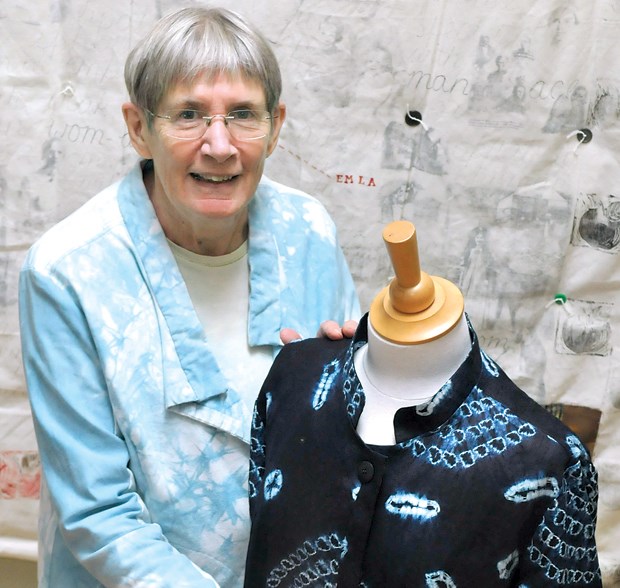Wearable Art Vancouver presents Slow Clothes: The Art of Fashion, Wednesday, Aug. 5, 12:30 p.m. at Millennium Park in West Vancouver. Part of the Harmony Arts Festival. Visit harmonyarts.ca for more info.
Fast food, fast technology, fast travel, fast living.
In reaction to a culture obsessed with high-speed everything came the Slow Movement, which over the last two decades has championed a shift toward gearing down the pace of life and building more meaningful connections between individuals.
The international movement has a number of offshoot initiatives, one of which is Slow Fashion. It advocates an alternative to factory-produced clothing with a focus on quality, locally made garments that will last season after season.
West Vancouver fibre artist Rosalind Aylmer was making her own clothing long before "slow" became a buzzword and next week, she and more than 20 other artists will present their handmade creations at Slow Clothes: The Art of Fashion. Organized by Wearable Arts Vancouver, an informal group of North Shore and Metro Vancouver fibre and jewelry artists, the third annual Slow Clothes show will hit the seaside runway Aug. 5 during the Harmony Arts Festival.
"Slow clothes are handmade at every stage," Aylmer explains. "Very often it starts with the weaving, certainly the dyeing, the sewing, the inspiration is all done by hand by artists, which means everything is oneof-a-kind and if you buy it, you're probably going to treasure it because it is not going to be seen anywhere else."
Aylmer got into textiles in the mid-1980s. One day, she was walking past the library downtown, saw a notice for a textile art exhibit and thought to herself, "Oh, that'll be interesting."
She soon joined the Vancouver Guild of Fibre Arts and has been working with the medium ever since. Over the years, Aylmer has taught at Capilano University and has led workshops at the annual Maiwa Textile Symposium. Today, she specializes in dyeing - specifically, indigo dyeing - and has an indigo vat in her backyard.
"It's capable of a huge range of blues, so it's a beautiful colour to work with," she says.
Other artists participating in next week's fashion show include Rene Corder Evans, Fariba Mirzaie and Anne Love. Additionally, three guest artists from South Korea are coming to town for the event and will be presenting hanji (mulberry paper) garments for children inspired by traditional Korean clothing.
Aylmer says the pieces modelled on the Ambleside runway will represent a mix of everyday clothing and more conceptual wearable art. Because it is a Slow Clothes show, the garments will feature natural fabrics. Not only are these easier than synthetics to dye and decorate, they also fit the "be kinder to nature" philosophy of the Slow Clothes show.
"Fashion is not kind to the environment. Fashion is very, very wasteful," Aylmer says, explaining people often throw out clothing after just one season. "Our clothes are fashionable - but they are not fashion in the sense that they are mass produced in any way, shape or form."
"People can express themselves and their own individual personality by just looking a little further a field than what's in all the big box stores," she adds.
Each of the pieces displayed will reflect the hand of the maker and honour the creativity that infuses the cloth with meaning, she says.
"Everything in the show will be made by hand."
The runway presentation will be followed by a sale of wearable art from 1:30 to 3:30 p.m.



